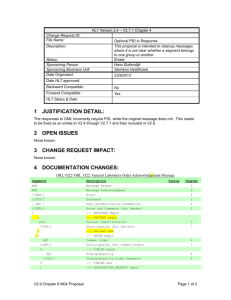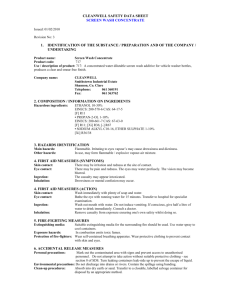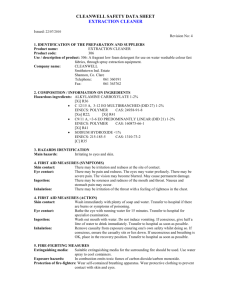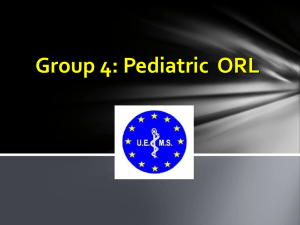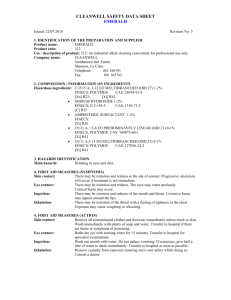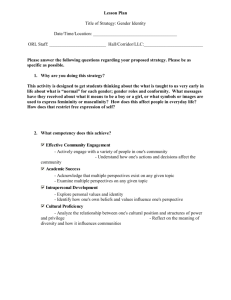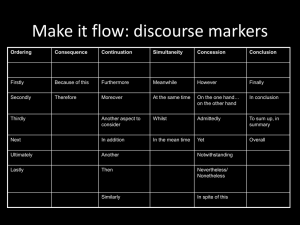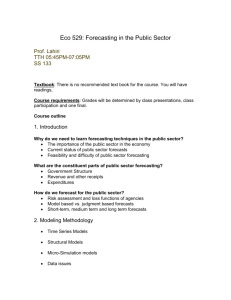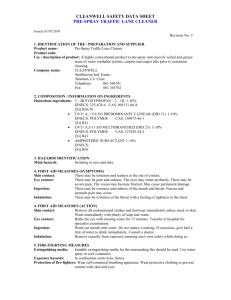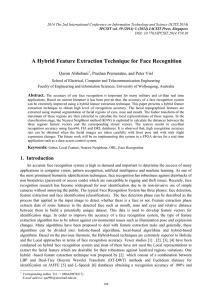Organizational Leadership Course Descriptions
advertisement
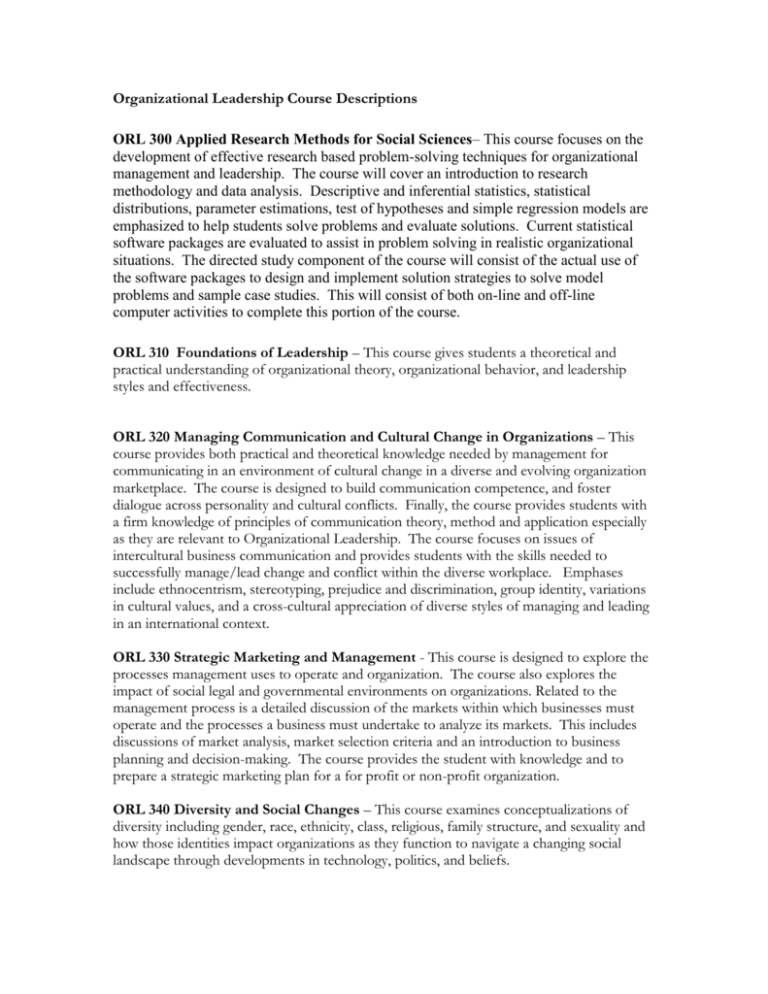
Organizational Leadership Course Descriptions ORL 300 Applied Research Methods for Social Sciences– This course focuses on the development of effective research based problem-solving techniques for organizational management and leadership. The course will cover an introduction to research methodology and data analysis. Descriptive and inferential statistics, statistical distributions, parameter estimations, test of hypotheses and simple regression models are emphasized to help students solve problems and evaluate solutions. Current statistical software packages are evaluated to assist in problem solving in realistic organizational situations. The directed study component of the course will consist of the actual use of the software packages to design and implement solution strategies to solve model problems and sample case studies. This will consist of both on-line and off-line computer activities to complete this portion of the course. ORL 310 Foundations of Leadership – This course gives students a theoretical and practical understanding of organizational theory, organizational behavior, and leadership styles and effectiveness. ORL 320 Managing Communication and Cultural Change in Organizations – This course provides both practical and theoretical knowledge needed by management for communicating in an environment of cultural change in a diverse and evolving organization marketplace. The course is designed to build communication competence, and foster dialogue across personality and cultural conflicts. Finally, the course provides students with a firm knowledge of principles of communication theory, method and application especially as they are relevant to Organizational Leadership. The course focuses on issues of intercultural business communication and provides students with the skills needed to successfully manage/lead change and conflict within the diverse workplace. Emphases include ethnocentrism, stereotyping, prejudice and discrimination, group identity, variations in cultural values, and a cross-cultural appreciation of diverse styles of managing and leading in an international context. ORL 330 Strategic Marketing and Management - This course is designed to explore the processes management uses to operate and organization. The course also explores the impact of social legal and governmental environments on organizations. Related to the management process is a detailed discussion of the markets within which businesses must operate and the processes a business must undertake to analyze its markets. This includes discussions of market analysis, market selection criteria and an introduction to business planning and decision-making. The course provides the student with knowledge and to prepare a strategic marketing plan for a for profit or non-profit organization. ORL 340 Diversity and Social Changes – This course examines conceptualizations of diversity including gender, race, ethnicity, class, religious, family structure, and sexuality and how those identities impact organizations as they function to navigate a changing social landscape through developments in technology, politics, and beliefs. ORL 420 Economics, Budgeting and Forecasting - This course analyzes, first, the resource allocation process, focusing on the affect of supply and demand’s impacts on market price and the importance of marginal revenue and marginal cost to price and output determination. Secondly, the course analyzes the value of macroeconomic variables and the firm’s use of such information. Lastly, the course conveys the understanding to the student of why firms need budgets and forecasts and how these concepts enable a manager to effectively manage the firm. The course will describe various budgeting and forecasting techniques that firms use today and will enable students to develop their own forecasts using this information. ORL 430 Corporate Accounting and Finance - This course analyzes, first, basic journal entries required in the course of corporate accounting, such as entries for billing and bill payment, as well as, equity and bond transactions. Secondly, the course analyzes the compilation of financial statements resulting from the transactions and the related basic concepts of corporate finance, such as financial statement analysis and the time value of money. Lastly, students are introduced to the financial concept of value creation, where a senior financial manager undertakes certain methods to increase shareholder value. These methods are critically analyzed. ORL 440 Ethics, Values and The Law - The course “Ethics, Values, and the Law” focuses upon changing organizations. As organizations change, organizations are impacted by numerous ethical and legal considerations. The course will provide an overview, which involves attention to the broader context of the changing organization, the various traditional modes of ethical reasoning, the relevant legal terminology and considerations, and appropriate responses to selected issues in changing organizations. The course will culminate in an application of these factors to specific organizations.
